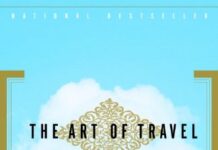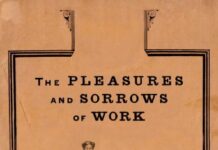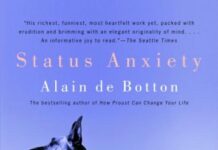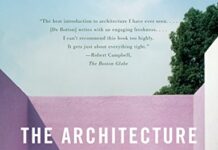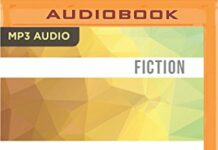
Ebook Info
- Published: 2013
- Number of pages: 320 pages
- Format: PDF
- File Size: 6.62 MB
- Authors: Alain De Botton
Description
What if religions are neither all true nor all nonsense? Alain de Botton’s bold and provocative book argues that we can benefit from the wisdom and power of religion—without having to believe in any of it.He suggests that rather than mocking religion, agnostics and atheists should instead steal from it—because the world’s religions are packed with good ideas on how we might live and arrange our societies. De Botton looks to religion for insights into how to build a sense of community, make relationships last, overcome feelings of envy and inadequacy, inspire travel, get more out of art, and reconnect with the natural world. For too long non-believers have faced a stark choice between swallowing lots of peculiar doctrines or doing away with a range of consoling and beautiful rituals and ideas. Religion for Atheists offers a far more interesting and truly helpful alternative.
User’s Reviews
Editorial Reviews: Review “A serious but intellectually wild ride. . . . One has to appreciate his pluck as much as his lucid, enjoyable arguments.” —Miami Herald“Commonsensical and insightful. . . . The wealth of knowledge and felicity of phrasing that de Botton brings to his task make for a stimulating read.” —Seattle Times “Quirky, often hilarious. . . . Focusing on just three major faiths—Christianity, Judaism and Buddhism—he makes a convincing case for their ability to create both a sense of community and education that addresses morality and our emotional life.” —Washington Post “Compelling. . . beautifully and wittily illustrated.” —Los Angeles Times “A wonderfully dangerous and subversive book.” —San Francisco Chronicle “A new book by Alain de Botton is always a treat. . . . De Botton is literate, articulate, knowledgeable, funny and idiosyncratic.” —Forbes.com“De Botton writes at his best when he confronts our abiding human frailty. . . . If only all writers wrote with such unabashedly kind intentions.” —Huffington Post“Provocative and thoughtful. . . . Particularly noteworthy are de Botton’s insights on what education and the arts can borrow from the formats and paradigms of religious delivery.” —The Atlantic “The eminently quotable de Botton holds forth on the deliberately provocative premise that ancient traditions can solve modern problems. . . . The premise he is testing is a worthy one: The secular world worships consumerism, optimism, and perfection to its doom, and would do well to make room for a little humility, community, and contemplation instead.” —Boston Globe“[De Botton] demonstrates his usual urbane, intelligent, and witty prose. . . . This book will advance amicable discussion among both believers and disbelievers.” —Library Journal“Highly original and thought-provoking. . . . De Botton is a lively, engaging writer.” —Publishers Weekly (starred review) About the Author Alain de Botton is the author of essays on themes ranging from love and travel to architecture and philosophy. His best-selling books include How Proust Can Change Your Life, The Art of Travel and The Architecture of Happiness. He lives in London, where he is the founder and chairman of The School of Life (www.theschooloflife.com) and the creative director of Living Architecture (www.living-architecture.co.uk). Excerpt. © Reprinted by permission. All rights reserved. from Part One: Wisdom without Doctrine 1.The most boring and unproductive question one can ask of any religion is whether or not it is true – in terms of being handed down from heaven to the sound of trumpets and supernaturally governed by prophets and celestial beings. To save time, and at the risk of losing readers painfully early on in this project, let us bluntly state that of course no religions are true in any God-given sense. This is a book for people who are unable to believe in miracles, spirits or tales of burning shrubbery, and have no deep interest in the exploits of unusual men and women like the thirteenth-century saint Agnes of Montepulciano, who was said to be able to levitate two feet off the ground while praying and to bring children back from the dead – and who, at the end of her life (supposedly), ascended to heaven from southern Tuscany on the back of an angel. 2.Attempting to prove the non-existence of God can be an entertaining activity for atheists. Tough-minded critics of religion have found much pleasure in laying bare the idiocy of believers in remorseless detail, finishing only when they felt they had shown up their enemies as thorough-going simpletons or maniacs. Though this exercise has its satisfactions, the real issue is not whether God exists or not, but where to take the argument once one decides that he evidently doesn’t. The premise of this book is that it must be possible to remain a committed atheist and nevertheless find religions sporadically useful, interesting and consoling – and be curious as to the possibilities of importing certain of their ideas and practices into the secular realm. One can be left cold by the doctrines of the Christian Trinity and the Buddhist Eightfold Path and yet at the same time be interested in the ways in which religions deliver sermons, promote morality, engender a spirit of community, make use of art and architecture, inspire travels, train minds and encourage gratitude at the beauty of spring. In a world beset by fundamentalists of both believing and secular varieties, it must be possible to balance a rejection of religious faith with a selective reverence for religious rituals and concepts. It is when we stop believing that religions have been handed down from above or else that they are entirely daft that matters become more interesting. We can then recognize that we invented religions to serve two central needs which continue to this day and which secular society has not been able to solve with any particular skill: first, the need to live together in communities in harmony, despite our deeply rooted selfish and violent impulses. And second, the need to cope with terrifying degrees of pain which arise from our vulnerability to professional failure, to troubled relationships, to the death of loved ones and to our decay and demise. God may be dead, but the urgent issues which impelled us to make him up still stir and demand resolutions which do not go away when we have been nudged to perceive some scientific inaccuracies in the tale of the seven loaves and fishes. The error of modern atheism has been to overlook how many aspects of the faiths remain relevant even after their central tenets have been dismissed. Once we cease to feel that we must either prostrate ourselves before them or denigrate them, we are free to discover religions as repositories of a myriad ingenious concepts with which we can try to assuage a few of the most persistent and unattended ills of secular life. Read more
Reviews from Amazon users which were colected at the time this book was published on the website:
⭐For me, Alain de Botton’s highly visible career as a public intellectual represents a personal journey as well. He took the path I wish I had pursued, as he did, much earlier in life. Therefore, here, I will not only review his newest book, Religion for Atheists (2012), but also chart the significance of this journey. Alain and I are intellectuals of the same generation, similar formation–in philosophy and literature–and with similar cultural ideals. Alain de Botton is one of the most vocal and prominent defenders of “a philosophy of everyday life”. He upholds the view–and shows by example, in each of his best-selling works–that philosophy and literature are not just for scholars or the intellectual elite. They are for everyone interested in taking some time off their busy schedules to enjoy the canonical works of Western philosophy and literature. If they read Alain de Botton’s books, they will be persuaded that–far from being dated or having a merely historical interest–these canonical works are still relevant to their daily lives. The ideal of engaging with philosophy and literature–let’s say, the wisdom of the ages–may seem perfect for an academic setting but, in my personal experience, I have found that for the most part it is not.Although there are some reputable scholars in the U.S. who write about important human issues in a way that is relevant to the general public and easy to understand without being simplistic–I’m thinking of Martha Nussbaum, Richard Rorty, Arthur Danto, Harold Bloom, Stanley Fish, Victor Brombert and a handful of others–for the most part, scholarly writing tends to be too specialized to interest the general public. Furthermore, during the mid to late 1990’s, when I was going to graduate school, the fields of Comparative Literature, English, French and other languages were dominated by exceedingly specialized, arcane theories–loosely called “poststructuralist” or “postmodernist”–that rested upon questionable premises and widened the gap between the general public and scholarly writing in the arts and humanities. For a persuasive debunking of those theories, I’d recommend Alan Sokal and Jean Bricmont’s Fashionable Nonsense: Postmodern Intellectuals’ Abuse of Science, 1997.Of course, there were and still are countless scholars in the Arts and Humanities–the vast majority perhaps–who write clearly about their areas of specialization and make important contributions to their fields. However, in most cases, their target audience is not, as it is for Alain de Botton, a general audience but rather a more restricted group of specialists. In my estimation, the specialized nature of scholarly writing combined with the predominance of arcane, trendy theories risked dooming literary studies to public irrelevance during the 1990’s.In this academic context, it took a lot of courage and a certain leap of faith for Alain de Botton to leave the academia (when he was a graduate student in philosophy at Harvard University) in order to become a public intellectual promoting philosophy and literature. While this goal would have been quite common for European intellectuals during the 1930’s and 40’s, when–to offer just one example out of many–the Existentialist movement had such a vast impact upon culture, this notion has become nearly obsolete nowadays. As difficult as it is to become a public intellectual in an academic setting–due to the two main reasons I mentioned earlier–it’s even more difficult to achieve this status outside the academia. Today the general public has been turned off by scholarship and, generally speaking, has little interest and time for intellectual pursuits.In an interview, Alain de Botton describes his choice to leave the academia in order to become a public intellectual as seizing the best opportunity: “In another age, I might have been an academic in a university, if the university system had been different. So it’s all about trying to find the best fit between your talents and what the world can offer at that point in time.” To turn this expression around, what De Botton has offered the world is a genuine love of knowledge; a sense of the practical applications of canonical works and a clear; elegant explanations of some of the best-known Western novelists and philosophers. His efforts have been consistently rewarded with resounding success. His first book, Essays In Love (1993) became an instant bestseller. The Romantic Movement (1994), Kiss and Tell (1995) and–my personal favorite–How Proust Can Change your Life (1997) quickly followed suit, becoming equally popular with the public. Alain de Botton’s success is well earned, not only because of the quality and accessibility of his books, but also because he works hard to maintain his public status and connection to readers. He travels around the world for book launches and talks; connects with fans on Facebook and other public forums; gives lectures at TED conferences and even runs his own production company, called Seneca Productions that makes documentaries about his works. For him, being a public intellectual–let alone being a writer–is more than a full-time job. It’s a life passion.Despite its provocative title, his newest book, Religion for Atheists (2012), offers neither a polemical defense of religion for nonbelievers nor, conversely, a defense of atheism for believers. Rather, it’s the strongest and most compelling defense for humanist values I have read since Martha Nussbaum’s Cultivating Humanity (1997). De Botton compellingly illustrates that religious principles and allegories should play an important role in modern secular society. His main thesis is that “we invented religions to serve two central needs which continue to this day and which secular society has not been able to solve with any particular skill: first, the need to live together in communities in harmony, despite our deeply rooted selfish and violent impulses. And second, the need to cope with terrifying degrees of pain which arise from our vulnerability to professional failure, to troubled relationships, to the death of loved ones and to our decay and demise.” (Religion for Atheists, 12)In a way, De Botton expresses the secular contemporary version of “Pascal’s wager”. Seventeenth-century French philosopher Blaise Pascal has famously stated in Pensées (1669) that since the existence of God can’t be proved or disproved, a rational person should bet that God exists and live “as though he had faith.” Then, logically speaking, if God exists he has everything to gain and if he doesn’t he has nothing to lose. Taking this kind of argument a step further, De Botton’s Religion for Atheists argues that even if we bet that God doesn’t exist, we should still adhere to some religious principles as if he did.What do we have to gain from “De Botton’s wager”, so to speak? First of all, religious principles and rituals–such as mass and other means of congregation–give us a sense of community. Without this, we risk becoming isolated, self-absorbed and alienated individuals. Religion also teaches us about the value of kindness and being other-regarding, which is as necessary for a sense of community as it is for modern marriages and family life. Religious figures and prophets, De Botton further pursues, offer us role models that are worth emulating. This is especially important in a media-driven culture that encourages us to admire athletes and actors, many of whom have questionable conduct and values. World religions also emphasize the role of education: not as a practical steppingstone to a pragmatic job, but as a way of growing emotionally and intellectually as individuals.Religion also teaches us a sense of modesty and reminds us of our limitations. Nothing brings this point home better than the problem of theodicy, or the question of why the suffering of innocents exists in a world governed by an omniscient and omnipotent divinity. The answer given by Christianity in The Book of Job, by Blaise Pascal, Simone Weil and even by Dostoyevsky in The Brothers Karamazov comes down to the following thesis encapsulated by De Botton: “Fragile, limited creatures that [we] are, how can [we] possibly understand the ways of God?” (Religion for Atheists, 198) There are some things beyond human comprehension but our limitations should not be an excuse for hubris or for believing that we’re above morality.If I place De Botton’s important new book in the longstanding tradition of Western humanism, it’s because it underscores the importance of human ethical and social values that find their best expression through the invention of religion. Although postmodern critics, such as Michel Foucault and Jean-François Lyotard, have described themselves as “anti-humanists,” asserting that humanism posits overarching principles that lead to exclusion and hierarchy, Religion for Atheists demonstrates clearly and thoroughly why that’s not so. On the contrary, De Botton persuades us, we cannot exist harmoniously or happily as a secular society without respect for the religious principles and wisdom passed through the ages.Claudia Moscovici, Literaturesalon
⭐My recommendation is to put the book’s title and jacket and one’s own argumentative mindset aside and to approach Religion for Atheists with an open mind. At the outset, Alain de Botton dispenses with the most frequent subject of engagement for today’s vocal atheists–arguments with believers against the existence of God–and elaborates on the more fundamental question for atheists: So now what?De Botton writes: “[T]he real issue is not whether God exists or not, but where to take the argument once one decides that he evidently doesn’t.” (p. 11) Although de Botton talks of “argument,” he sets his sights on a post-theistic discussion of proper nurturance of our quite material and mortal souls. De Botton’s title for his first chapter “Wisdom Without Doctrine” frames his endeavor.By pursuing wisdom, de Botton invokes an old-fashioned concept. His is a contemporary exposition on the ancient (and somewhat out-of-mode) philosophical question of “the good life.” Understood this way, de Botton is offering the opening voice in a Platonic-style dialog. His work is an invitation to engage and, of course, disagree with but not dismiss the ideas he presents. Taken up with the intended spirit, Religion for Atheists has much to offer.De Botton is a lucid and incisive writer. So, if nothing else, his writing craft is pleasing. His aphoristic essays provide many thoughtful nuggets to reflect on. Challenging the commercialization of the public sphere, de Botton explains, “In truth, we are all fragile in our commitments and suffer from a weakness of will in relation to the siren calls of advertising, an ill-tempered three-year-old entranced by the sight of a farmyard play set with inflatable dog kennel as much as a forty-two-year-old captivated by the possibilities of a barbecue set with added tongs and hotplate.” (p. 88)The marketization of almost every aspect of secular society is a key concern. De Botton is troubled that the secular world appears to be abandoning to the religious sphere all values except market ones. He writes, “[W]e have allowed religion to claim as its exclusive dominion areas of experience which should rightly belong to all mankind – and which we should feel unembarrassed about reappropriating for the secular realm.” (p. 15) And later, “One of the losses modern society feels most keenly is that of a sense of community. We tend to imagine that there once existed a degree of neighborliness which has been replaced by ruthless anonymity, a state where people pursue contact with one another primarily for restricted, individualistic ends: for financial gain, social advancement or romantic love.” (p. 23)To counter the perceived secular trend toward ruthless pursuit of individualistic ends, de Botton reappropriates “agape”–an ancient Greek concept itself appropriated by early Christians to refer to the self-sacrificing love of God for humanity. Refigured by de Botton, agape would mean an un-self-involved love of humanity by humanity. An analog would be the Buddhist emphasis on all-embracing compassion. To de Botton, we urgently need institutions designed to help cultivate this wide-armed love and compassion. Why? Because we are fallen in our natures, fundamentally sinful in a purely secular sense. Without corrective institutions, we tend to the selfish and venal and petty.At the same time, even in the wealthy West, we suffer in our vulnerability and need mercy. In his chapter “Tenderness,” de Botton details an imagined scene in a centuries-old chapel on a town backstreet, where a middle-aged man “shakes down his umbrella and steps inside . . . The man is exhausted. His joints ache. He feels weak, vulnerable and close to tears. No single event has brought him to this point, just a run of minor humiliations that have cumulatively contributed to an overwhelming sense of mediocrity, superfluousness and self-hatred.” With striking emotional insight, de Botton then outlines the subtle failures that have led this mid-life everyman to despair. As a result, “He wants to fall asleep and be held. He wants to cry. He wants to be forgiven and reassured. There is music playing . . . the aria ‘Ebarme dich, mein Gott’ from Bach’s St. Matthew Passion. He searches for ideas he can cling to, but nothing seems solid. He is unable to think logically and even making the effort to do so has become more than he can bear.” In this state beyond reason, the tender image of the Virgin offers him solace. (p. 166-167)In this single, lyrical passage, de Botton captures a common, lived experience well-addressed by religion, which atheism/secular humanism, if they are to flourish, must find ways to fulfill, rather than rebuff. De Botton lectures, “By contrast with religion, atheism is prone to seem coldly impatient with our neediness. The longing for comfort which lies at the heart of the Marian cult seems perilously regressive and at odds with the rational engagement with existence on which atheists pride themselves. Mary and her cohorts have been framed as symptoms of urges which adults ought quickly to outgrow.” (p. 173)For the truth of de Botton’s characterization, one need only remember the American Atheist’s “You KNOW It’s A Myth” Christmas-time billboard campaign. De Botton’s Religion for Atheists, while not perfect in all its particulars, is a powerful and much-needed antidote to the prevailing curmudgeonly atheist approach.De Botton recognizes that our spiritual needs do not lapse along with superstitious belief, and atheism and secular humanism will never replace religion until the secular sphere is actually able to replace religion. De Botton’s Religion for Atheists is a heartfelt and welcome engagement with this dilemma.S. Anne Johnsonat Spiritual Life of An Atheist at wordpress.
⭐This is possibly one of the most important books I have read. Before. I was an evangelical atheist of the Dawkins, Hitchens, …. school. I would go to church a couple of times a year, perhaps for some of the reasons that De Botton outlines. My wife was on the PCC, though of the practical rather than spiritual side. And then she died, and the community was a source of strength. That’s when I read it and realised that church has a lot to offer even when you don’t believe. I gave my copy to a Christian friend who had been upset after reading God Is Not Great – the aggressive tone. I now go most weeks. I don’t take communion. I don’t believe in God, but I do believe in the benefits of a Religion of doubt.
⭐I’ve read most of De Botton’s books, including his early novels, and think this is his finest.This book pulls together several strands from those other books – most notably The Architecture of Happiness and Status Anxiety – as it attempts to extract the non-religious elements of religion that secular society could learn from.These include elements of community spirit, the use rituals to give us time to come to terms with our experiences and emotions, and the ability to use TV preacher-style rhetoric to draw in an audience.Secular society has thrown the baby out with the bath water when it comes to religion, de Botton is saying, and it his avenue of exploration is far more interesting than that of Richard Dawkins, who would like to cosign the entirety of religion to the dustbin because the idea of God is false. Surely what is more interesting is that is God is false, why have so many people felt the need to have a God in their lives across so many different periods of history.De Botton doesn’t so much probe that area, but the related one of the structures built up to support a religion, and asks which of those could also be used to better support society – and more importantly, the individuals that comprise it.Fascinating work, as always.
⭐Alain de Botton is an engaging and popular writer on topics philosophical. He is also an atheist. But he takes a positive view of religion, not because it is ‘true’ but because it is (broadly) useful.it represents and gathers together a number of aspects of religious practice which might wisely be acknowledged and adopted by people regardless of their disposition towards religion as such. His chapter headings (here are a few of them) illustrate his general approach: Wisdom without Doctrine; Community; Kindness; Education; Tenderness; Pessimism. In each case he argues that mindsets and attitudes, as well as practices, represent a resource for living which the western world seems to have sidelined. I found this a stimulating book, and welcome even to (especially to?)a lifelong Christian.
⭐I can see they many people have disliked this book intensely. I, however, found it rather thought-provoking, perhaps because I am new to atheism and its works.The book looks at the many benefits bestowed on those belonging to a religion, such as a supportive social network, realisation of our importance in the world as a whole, a source of comfort, beautiful architecture etc. It then discusses how we can provide those benefits within a secular state.For me there was much food for thought. The best topics were probably at the start of the book and I found it tailed off rather towards the end. Well illustrated though, which was rather nice.
⭐The basic tenet is that the expressions of religious beliefs have a lot ideas the secular world can usefully take up in terms of their structures and rituals, art and architecture, and sense of ‘community’..There are many assumptions about human responses – for example, I am not sure that knowing the incredible distance of the nearest galaxy will make the depressed amongst us standing on a railway bridge feel less suicidal? Thinking of the effect on the train driver might just do that. And for some people watching a ‘flickering screen’ e.g. a scarey but not too scarey film can help them to sleep – not keep them awake as de Botton contends. Reading Montesquieu savouring every sentence does not always work (eg The Cannibals chapter ). There is mention by de Botton of tragedies in “every ” life – but some people suffer a great deal more than others and cannot, as he ruminates, think back to being comforted by a parent if they never were.Ideas are scattered along the way of this book and to be useful all need to be developed much further – such as that “hope” causes grief – this is a very interesting idea though it is the death of hope which does that. And that beauty can help us to feel better: this is a good notion however there is a massive assumption that it makes us better people: (you may be more likely to get an act of kindness/neighbourliness in the ugly back streets of a poor city than in a picturesque commuter village but making one corner of your room cheery can be life enhancing) . Love seems to conflated with instinct e.g. the love of your own infant is very different from the decision to continue to love a person in your life who is being very difficult, or to befriend an isolated stranger.There is maybe a touch of romance about religion especially references to the Catholic church – the structures can help but like all institutions there are those who ‘belong’ more than others (e.g. arguably, democratisation favours the bold – the fight for gender equality will seldom change social class structures which are becoming more rigid) The comments about the need for people to have more realistic views of marriage – child raising not happiness- is another idea cast on the waters. But whilst happiness may not be a valid objective a happier parent may be better able to manage the child raising.In summary I found this to be book of personal, roughed-out ideas and themes on creating happiness and community with less about the how and who decides what is “good” The large number of photo. reproductions are not so good. The effects of religion on creating community a touch historical and maybe overestimated (‘outsiders’ remain outsiders for most churches) and the notion of having “psychoanalytically trained travel agents” to suss out our needs may be an intrusion too far with potentially startling consequences (and lots of divorces?)..But this would be a brilliant starter for a discussion on the many topics covered – a good work for a secular non fiction book /philosophy group – or church meeting – and an engaging read for the rest of us.
Keywords
Free Download Religion for Atheists: A Non-believer’s Guide to the Uses of Religion in PDF format
Religion for Atheists: A Non-believer’s Guide to the Uses of Religion PDF Free Download
Download Religion for Atheists: A Non-believer’s Guide to the Uses of Religion 2013 PDF Free
Religion for Atheists: A Non-believer’s Guide to the Uses of Religion 2013 PDF Free Download
Download Religion for Atheists: A Non-believer’s Guide to the Uses of Religion PDF
Free Download Ebook Religion for Atheists: A Non-believer’s Guide to the Uses of Religion
